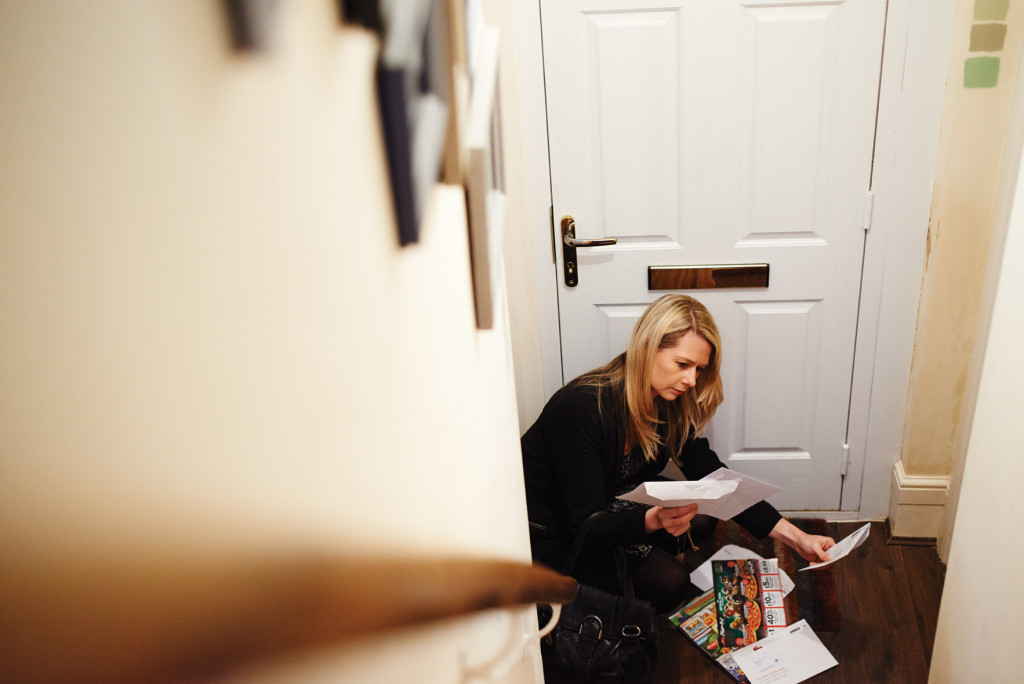101 ways to save money
Just like any adventure, committing to living frugally can come with its pitfalls. When it comes to budgeting and taking care of debts, sometimes it’s not so much about making more money as it is about saving the money you already have.
The tricky part is knowing where to start! What savings can we make right now that could make a lasting difference?
Turns out it might be easier than you think!
Here are 101 hacks to save you pennies in six categories, compiled from various sources around the web including the Money Advice Service. If you’re looking for a way to keep the pounds in your pockets, this is a good place to start!
Bills and utilities money-saving tips

- It’s never a bad thing to make sure you’re getting the best deal on your energy bills. The Energy Saving Trust has a free home energy check tool on its website that can save some households £250 with its personalised advice.
- Energy-saving lightbulbs might look a bit ugly and be more expensive than traditional bulbs, but they should still benefit you in the long-term. Some sources claim they give up to 25,000 hours of light compared to 1,000 for a traditional bulb.
- A water meter might not always be beneficial for you, as it calculates the sewerage pumping costs as well. The Consumer Council for Water has a calculator that can tell you if a meter is really worth it.
- When buying an appliance do you look at cost, features, space, or energy efficiency? The latter could save you big money in the long-term.
- Paying by Direct Debit has several advantages; it takes out the issue of remembering to pay (and therefore no black marks on your credit report) and spreads the cost. Timing your priority Direct Debits around when your regular income comes into your account means that you can ensure they’re always covered.
- Price comparison websites really should be a port of call for any insurance-related matter, but don’t forget that not all companies are listed, including three of the biggest: Direct Line, Zurich and Aviva.
- Dual fuel accounts have pros and cons. While it was once assumed that a dual tariff was definitely a cheaper option because of discounts, there are now many specialist companies that supply just one, and sourcing them separately might be beneficial.
- It may be worth looking into overpaying your mortgage if possible. The added amount will mean your loan-to-value (LTV) percentage will be more favourable the next time you remortgage. However there can be penalties for overpaying, so it’s better to check the terms and conditions with your mortgage provider first.
- You can get roof and wall insulation for free from certain companies such as British Gas. This can save you heaps of cash in the long run. As of April 2016 this is no longer available.
- Phone up your council and ask to see if you can obtain a free water butt for the spring/summer, to save on watering costs. Just stick it outside and let the weather do all the work!
- If you’ve got no holidays planned drop your annual travel insurance if you’ve got it; once you book a holiday, start it up from then, otherwise you might as well throw your money into the Atlantic.
- If you’re thinking of getting a will then look out for Free Wills Month (the clue’s in the name!). This runs throughout March, so if you’ve missed it this year then stick it in your calendar for next year!
- Get up 15 minutes early once or twice a week and pay everything that needs to be paid, sign up to offers, and plan your spending for the day. You’ll soon see results.
- If you’ve not had your property valued for a while, there’s a chance you could be paying less for your council tax. Find out more about getting a review from the Valuation Office Agency.
- Your bank might imply that it’s ‘doing you a favour’ as a loyal customer when it offers a mortgage. It’s always good to do a price comparison anyway.
- Stick within the data limit of your broadband provider or go unlimited, or you could face penalty charges.
- If you really are cheesed off with your various subscriptions give the relevant company a call and ask if they can do a deal for you. Threatening to leave really does the trick, but watch they don’t call your bluff.
Fashion money-saving tips

- Be thrifty: If you haven’t worn an item in the last year, it’s unlikely you’re going to. Take it to a clothes exchange store or if you’re the creative sort you could try making it into something new.
- Hunt for a bargain: It is amazing what you can find in charity shops nowadays, and the vintage look is ‘hot’ at the moment.
- Restore: Don’t throw out clothes just because they have a small tear or hole; repair them instead.
- Make your own clothes: following a dress-making pattern is much easier than you might think. There are plenty of ideas and patterns for free on Pinterest.
- Be a savvy shopper: if you really ‘need’ something new check out the sale rail first and never buy an item at full price.
- Host your own swishing party: invite friends to bring an item of clothing they don’t want any more to your home and swap it for something you no longer wear and are willing to give away.
- Stick to the classics: trendy clothes go out of fashion fast, so purchase items that will stand the test of time.
- Think outside the box and shop in different departments. Hoodies, t-shirts and even shirts can often be gender neutral.
- Buy what fits: don’t buy clothes that are too small or too big on the idea that you’ll fit into it eventually. That trick only tends to work with growing kids and their school uniforms!
- Learn to share: if you only need to wear something once see if you can borrow it from a friend or family member first.
- Avoid store cards. If you can’t pay it back quickly then the interest can be extortionate. This’ll eliminate any introductory 10 or 20% discount you got when you signed up.
- Mix and match: stick to items that will coordinate with your existing wardrobe.
- Buying online can be cheaper than buying on the high street, especially as many fashion websites often discount and offer voucher codes to knock the price down even more.
- Follow the one in one out rule: for every new piece of clothing you buy, you have to give away or sell, to help curb excess.
- Make discounts count: shop in department stores such as TK Maxx to buy designer clothes for less.
- Freeze: challenge yourself to not buy any clothes for a set period of time, and see the difference it makes to your bank balance.
- Perfect presents: ask for clothes or high street vouchers as gifts for special occasions such as your birthday or Christmas.
- Keep an orderly closet: this helps you see what you have and avoid silly buys you don’t need.
Transport costs money-saving tips

- Car share on your commute – it’s cheaper, warmer than the bus and (provided you like your colleagues) you can have a nice chat on the way to work.
- Work out whether buying a diesel, eco or hybrid car would make more financial sense over the long run. Don’t forget to factor in fuel, car tax and even the congestion charge.
- Sign up for a season ticket on the train. Travel off peak if possible to avoid the most expensive rail journey times.
- Find a cheaper parking spot by using Just Park.
- Make use of an unused driveway by renting the space for parking.
- Walk or cycle wherever possible – that quick nip to the shops can unnecessarily burn valuable fuel. Might as well burn some calories instead!
- Book train journeys well in advance to make the most of the cheapest fares.
- Book any holiday flights with a budget airline.
- Don’t be tempted to whack on the car’s air con – this increases fuel costs more than opening a window and getting some fresh air instead
- Use a website such as Petrol Prices to keep an eye on the cheapest petrol stations.
- Cut out costly taxi rides by ensuring you get the last bus home from a night out or bag a lift with a ‘designated driver’.
- Keep an eye out for supermarket fuel offers – many will offer you money off per litre when you spend a certain amount on groceries.
- Use an Oyster card when travelling in London – they can be worth it even if you’re only in the city for a few days.
- Plan your driving routes to avoid congested roads – route planners will let you know of any road works to avoid.
- Switch from petrol to a diesel vehicle to get more miles from your fuel.
- Lighten the load in your car – don’t weigh your vehicle down by carrying unnecessary items.
- If you’re a pensioner use your bus pass – it’s your free ticket to ride on buses across the UK!
- Look into whether your local council does MOT tests. They won’t be able to carry out necessary repairs but don’t have a vested interest in finding faults.
Leisure money-saving tips

- Planning ahead is the easiest way to cut leisure costs – simply budget what you will spend for admission, travel and snack costs.
- Don’t cough up your life savings for a tub of popcorn at the cinema. Pop into the supermarket or corner shop beforehand to buy snacks.
- Does your local cinema have an email newsletter? Sometimes it’s worth signing up, as you’ll be the first to know about reduced price viewings as well as new releases.
- Get scissor happy and look out for weekend discounts in the newspaper for UK attractions to snip out and save. Look out for discount evenings at your local bowling alley or ice rink and take advantage.
- Team up with friends and family to buy tickets for events in bulk and receive a group discount.
- Look for free festivals in your local area. In the summer time you’ll find craft fairs and even food festivals that let you enter for free (and it’s likely there will be free samples too!).
- Visiting a new city or planning to do some exploring around your own? Check out vouchercloud first to see if there are any great offers on restaurants and other attractions in the area.
- Sign up for free trial day passes at local gyms in your area to take advantage of the equipment and even the pool or sauna for the day.
- Save all those sachets of condiments you don’t use when eating takeaway food and keep them in your bag. You never know when they might be needed.
- Most cinemas have a ‘cheap night’, so only plan to visit on those days. Matinee showings are also cheaper throughout the week if you have a day off work.
- Go to your local park for the afternoon with a picnic instead of driving somewhere. Most will have a play park for kids and seating for adults to keep everyone happy.
- Unless you are starting a strict exercise regimen don’t sign up for the gym. Most gyms let you pay per fitness class or even for a day pass and if you only intend on visiting once a week you’ll save money.
- Don’t buy expensive programmes from theatre shows or sport events that will more than likely just sit in a drawer afterwards. Take your camera to document your visit (if you’re allowed to take photos at the venue) – any other information about the day can usually be found online.
- There are plenty of free museums out there right on your doorstep – you’ve probably never even visited your local town’s museum! Plan a visit and enjoy the beauty of free education.
- A good number of English Heritage and National Trust attractions are free to visit for families, but make sure you check the venue details online first.
- If you have it, take your own equipment to places such as the ice rink or squash court. Most centres charge extra for equipment hire so if you have your own and go regularly you can save yourself money in the long run.
- If you’re a student always check to see if you can get a discount on admission prices for flashing your student card.
- Check to see if your supermarket loyalty points, or bank account perks, can get you money off at attractions.
Food and drink money-saving tips

- Live out of your cupboard for a week instead of buying new food all over again. SuperCook is a great website for ideas on how to use up those lentils sitting at the back of the cupboard.
- Check your portion sizes. You might be able to make two meals out of one by sticking to the recommended amount.
- Go big! Instead of buying pork chops, get a large pork loin or shoulder. For example, roast half for Sunday dinner and use the rest to make a midweek pork casserole.
- Plan your meals on a weekly basis and only buy what you need.
- Never go food shopping when hungry – you’ll buy more treats and snacks when your tummy is rumbling!
- Make use of over-ripe fruit by turning them into cakes and desserts. Browning bananas can be mashed up and used to make delicious banana loaf.
- Buy frozen vegetables instead of fresh if you commonly find yourself throwing mouldy veg out within a few days. Cook the frozen stuff and you won’t notice much difference.
- Go shopping late. If you’re happy to visit the supermarket after 8pm you’ll probably find plenty of items which have been marked down in price. If you can use them quickly, you can snap up some bargains.
- Several leading grocery retailers now offer price match promises to customers if the same goods could have been bought for less with a rival. Keep receipts and make sure you’re not paying more for your food.
- Eat out for less by signing up to receive special offers from a range of restaurants – many big-name chains have ‘two for one’ deals on adult meals, or allow kids to eat for free.
- Did you know that restaurants that serve alcohol are required by law to provide tap water? Ask for a jug of tap water on the table at dinner and save pounds compared to bottled mineral water.
- Make lunch: avoid popping out to buy a sandwich during your lunch break and you could easily save up to £5 a day. Making your own lunch works out far cheaper. If you don’t do that and need to buy in lunch, you could get a six-pack of rolls, a pack each of cheese and ham. That way you have enough for the next three lunches.
- Stay strong in the face of discounts. Not all of them are as good as they sound. Buy two multipacks of crisps for £3? Brilliant! But if a single pack is priced at £1.75, you’ve saved 50p. Or not, because you’ve spent £1.25 more than you’d planned to and now have a second stack of crisps that you didn’t really want.
- Cooking with booze? Go as cheap as possible. If you’re rustling up a slow-cooked stew for a supper the wine is there to tenderise the meat and add flavour, not to win any competitions.
- Online food shopping can be a winner. Many retailers offer enticing deals for newbies, for example £15 off when spending £60. The key is to spend bang on the qualifying amount. Then try a different retailer the week after and play the discount game.
Kids money-saving tips

- Buy second hand clothes and toys. You can pick up amazing toys and hardly worn clothes by subscribing to your local Facebook ‘sale or swap’ site.
- If your little one has so many toys they don’t know what to play with first, invest in some plastic storage boxes and put a few toys into each one. Allow your child to have one box to play with and store the rest away. Alternate the boxes every few days and your child is much more likely to play with the toys in the box (it’s like buying them new toys!)
- Make your own cards for family members – why spend good money on cards when you could be putting your little one’s artistic talents to good use? Family members would much rather have a personal, bespoke hand drawn card anyway.
- Consider investing in cloth nappies for babies. While an initial investment is required, reusable nappies work out much cheaper than disposables, saving you in the region of £1,200 over the 2.5 years your child will be wearing them.
- Make and freeze baby food. Don’t waste your money on expensive organic baby food pouches, which can cost upwards of £1 each. It’s so quick and easy to make your own, which can be frozen and used as necessary.
- Facebook ‘like’ any local amusement parks and activity centres near you to take advantage of any special offers they promote.
- Go to NCT nearly new sales to pick up good quality baby clothes, toys and equipment.
- Take advantage of free school meals while your kids are in Key Stage 1
- Make use of deal-of-the-day websites which regularly feature cheap holiday deals, flights, hotels and days out
- Holiday with another family to cut down accommodation costs – it’s fun too!
- Friday night cinema – at home. Make Friday night ‘treat night’ by renting the latest films, switching off the lights and supplying popcorn and snacks. Great if you have babies or small children who aren’t quite ready for the real thing.
- Save a small, manageable amount every week to spread the cost of birthdays and Christmas.
- Don’t buy too much school uniform, but invest in the right areas. School skirts and trousers should be hardwearing and it’s worth paying a little extra for something that will last. Shirts and polo shirts will be covered in paint, pens and food within a couple of weeks so spend less and be prepared to buy more frequently.
- Don’t buy too much school stationery – primary schools generally supply their own.
- Label school uniform – otherwise it will get lost!
Phew! Want more money-saving tips straight to your inbox? Sign up for our monthly email!
Take financial control within a week?
7 Days 7 Ways, our week-long support programme can help you make sense of your money, budget and debts. We’ll send you an email every day for a week, with tips and advice about getting your finances on track.
Please enter your email address to signup:
Your email address will only be used to send you the 7 Days, 7 Ways emails. See our privacy policy for more information.
Tags frugal livingmoney savingmoney tipsthrifty
Related Posts
There’s a lot of inaccurate information about IVAs around the web. Let's...
Read more
We’ve noticed a growing problem of ‘spam’ text messages used to tempt...
Read more
People hide the extent of their debts from their nearest and dearest....
Read more
Responses